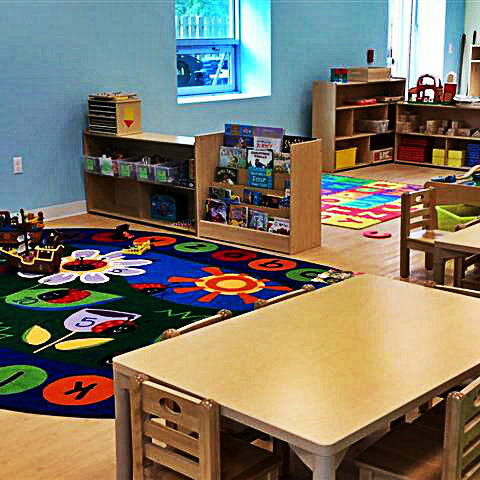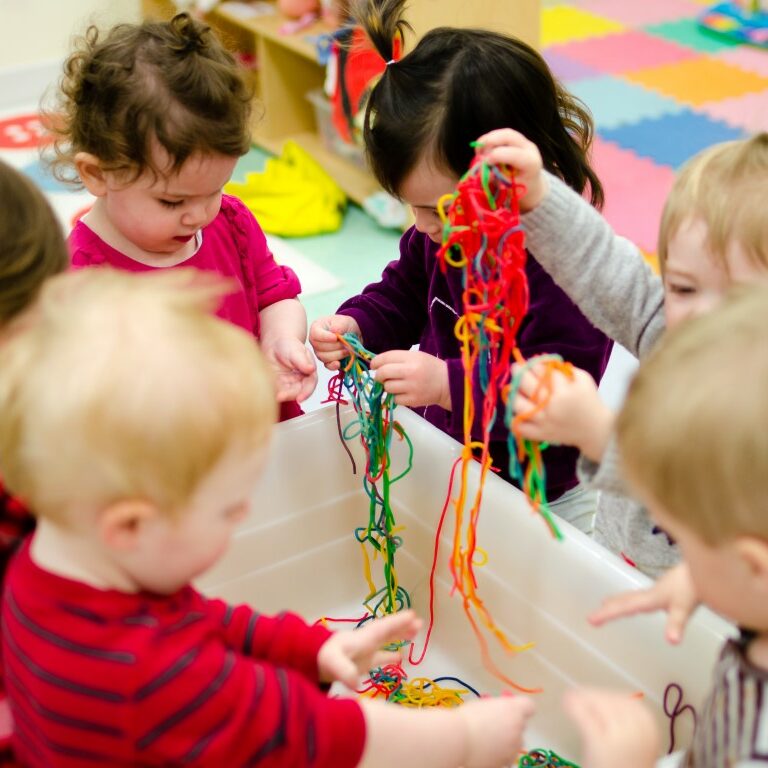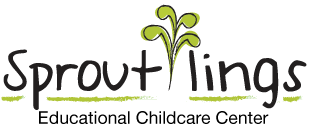Beanstalks (Early Preschool)
Beanstalks: 2.5 - 3.5 years | Beanstalks II: 3.5 - 4.5 years
The Beanstalks classroom is built around Learning Centers, like all of our classrooms starting with Seedlings. (Read more about our Learning Centers here.) Children engage in large and small group activities, spending much of the day choosing their own activities structured to encourage growth in specific developmental areas.
Interest-Driven Learning
Children in Beanstalks work on studies that may last for one week up to one month, depending on the children’s interest and engagement in the topic. The structure of their day leaves significant periods of time for children to engage in activities of their choosing within the classroom interest areas. Teachers work with the children, extending the learning and challenging them with introduction of new skills and concepts, all within the context of play.


Hands-On Experiences
Each child learns at his or her individual pace and at his or her developmental level. Hands-on experiences are provided during the day to engage and hold children’s interest. For example, in the case of a dinosaur study, Beanstalks not only read about dinosaurs and fossils, but supplement their learning by making fossils with plastic dinosaur footprints and building a large dinosaur replica. Children might be encouraged to create and name their own dinosaurs. In small groups, teachers can work with children at similar developmental levels to provide more challenging experiences.
Skill Development
Included below is just an example of some of the key skills being developed in different parts of our room:
- Social-emotional: Imaginative play skills, role playing, problem-solving, cooperation, communication and language skills
- Language and Communication: Following multi-step directions, the correct use of grammar, pre-writing skills, letter recognition and formation, introduction to name writing
- Fine motor skills: Using scissors, forming letters and numbers, holding crayons and pencils with correct grasp
- Math concepts: Introduction to simple shapes and numbers through 10 and sorting
- Science concepts: Color reinforcement, seasons and weather, animals and simply physics experiments
- Literacy concepts: Simple sight words, looking at books independently, discussing stories and concepts, rhymes and poems
- Music: Using instruments and following rhythm
- Large Motor skills: continuing to climb, run, catching a ball, hopping on one foot
Global Cultures
We introduce our Beanstalks to a range of cultures and customs that may be different from those they have experienced. At Sproutlings, we celebrate differences and encourage our students to do the same. We embrace what is different about every child and welcome each child and family to share their traditions and customs with the class. In keeping with this philosophy, we celebrate many different cultures within the center, enjoying food and traditions from a variety of backgrounds.
Toilet Training
Toilet training is a skill that is typically a goal within this age group. Sproutlings staff members have the patience and knowledge to assist your child, whether toilet training is a simple and quick process, or if takes a little more effort (and a lot more patience). Our experienced staff members are able to provide the encouragement and support children need to master toilet training. We work together with you to handle any challenges that arise, and we make every effort to individualize the training process to the method that best meets the needs of your child and family.
Venturing Outside
The group enjoys daily outside play (weather permitting) in our natural park playground (read more about our Outdoor Learning Environment here) and participates in center-wide music and gym programs.

Preschool-Ready
The Beanstalks class maintains a low teacher to child ratio to ensure children are getting the highest quality of care and plenty of one-to-one attention.
Children can bring their own, nut-free lunch, or order meals (click here for more information).
